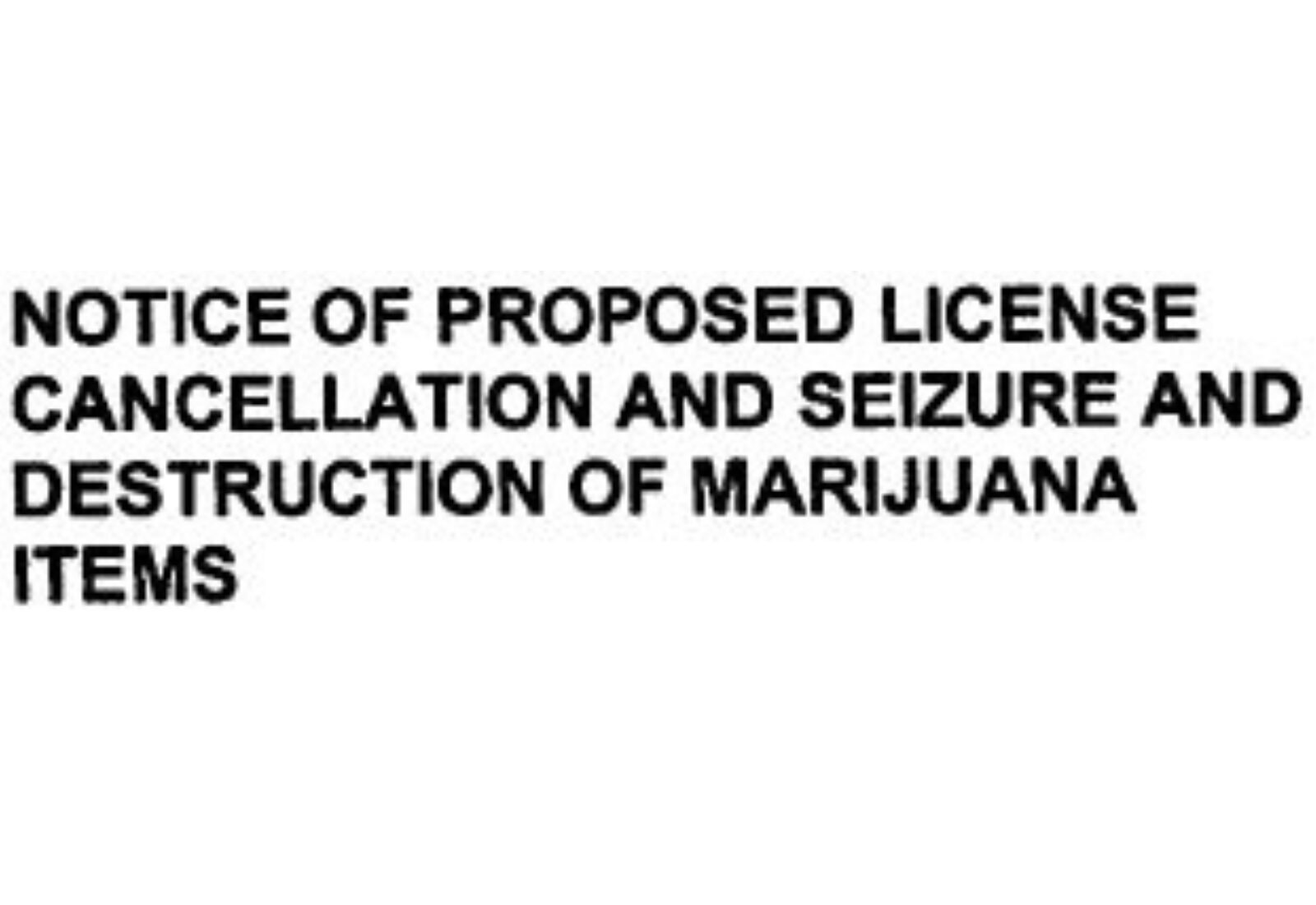
Oregon Cracks Down on THC Inflation and Testing Labs
On September 25th, the Oregon Liquor and Cannabis Commission (OLCC) sent notices to seven licensed testing laboratories, proposing license cancellation in some cases and suspension or fines in others. The notices center on alleged THC inflation, and extend back to instances identified in 2023. We only have eleven labs in Oregon accredited to do this mandatory work, so OLCC chasing seven of them is a big deal.
This story broke yesterday afternoon in the Portland Business Journal (“Journal”). See: Oregon cannabis labs face shutdown in testing crackdown. I’m guessing that link is paywalled for most of our readers, so I’m glad to have this platform to share some thoughts below.
The proposed suspension and cancellation notices
An obvious question here is why OLCC has proposed to expel some of these licensees, but only suspend or fine others. We’re talking about Category I violations across the board, after all, and the default sanction for any Category I violation is license revocation.
Here, though, the Commission seems to be looking at conduct in two distinct camps: a) conduct that simply could be negligence (and specifically, lazy sampling); and b) attempts to rig results by adulterating products. All seven labs got dinged on “a”, while three also got dinged on “b.”
In the “a” notices, charges include: i) failures to ensure an entire batch of marijuana was available for sampling, and ii) insufficient sampling increments. In the “b” notices, OLCC alleges that “the Licensee’s employees, agents or representatives intentionally added a cannabinoid concentrate, kief [], to the samples taken for testing.” Which is not great.
A long time coming
Controversy around cannabis testing is an old story in Oregon. Prior to OLCC regulation, we had “medical marijuana” from 1998 to 2014 with no testing requirements whatsoever. In 2014, after dispensary licensing commenced, the Oregon Health Authority (OHA) issued poorly-written testing rules that no one really followed. In those days lab shopping was common, dozens of harmful pesticides were allowed, and OHA didn’t even have the authority to regulate producers or labs, anyway.
In 2015, the Oregonian published a landmark investigative piece called “A Tainted High” exposing all of this and more. In 2016, the OLCC program launched, with more testing rules and more enforcement authority, at which point a serious testing bottleneck ensued. Once things cleared up, focus shifted to microbiological and heavy metal contaminants, alongside inflated THC numbers. In 2019, the Secretary of State recommended shelf audits at dispensaries, which eventually did occur.
The latest noise around testing was the aspergillus litigation, where the Cannabis Industry Alliance of Oregon (CIAO) won a temporary stay of enforcement on testing for that mold, and OHA abandoned rules on the topic. In 2023, we also got House Bill 2931, which creates a state-run cannabis reference lab. In June of last year, I wrote:
Why did everyone, including industry, feel a state cannabis reference lab was needed? First, for as long as the OLCC program has existed (and even before that, in the OHA medical program), agencies have fielded complaints from cannabis licensees around testing. Those complaints include allegations of labs spiking potency levels on test samples, and of labs falsifying failed test results. From there, you have the related concepts of “lab shopping” by licensees and “pay to play” testing with labs.
State agencies have argued that to properly regulate licensed labs, an independent mechanism to verify test results is needed. Audits have similarly recommended this. The newly created reference lab will provide: a) a neutral, third-party source for testing and re-testing; b) quality assurance review for licensed labs; and c) a mechanism to audit complaints from licensees about faulty lab testing. This is a positive development.
So, everyone has been looking at this for a while. And now we’re full circle on this inflated THC thing– a problem that is not unique to Oregon.
What happens next?
All of the OLCC labs that received the September 25th notices have until tomorrow, October 25th, to request a hearing before an administrative law judge. This is a critical deadline; hopefully all of them have done so. The rules also require an answer to be filed with any hearing request, but traditionally OLCC affords licensees up to two weeks prior to any prehearing conference to make the submission. (This is not advice.)
You’re here for the big question, though, which is: does OLCC plan to go to the mat on this, with massive fines, suspensions and license cancellations? I don’t think so, necessarily, but it’s obviously a case-by-case thing. Much will depend on the underlying testimony and reports; whether a lab owner knew what their employees were allegedly doing; how the licensees respond; etc. But as I told the Journal: “They can’t have no labs. OLCC may push for labs to come to them and say we’re sorry, it will never happen again, and show internal (standard operating procedures) and maybe creative solutions”. . . in order to safeguard testing.
Is this just a problem for labs?
No. I told the Journal that “it’s not fair just to blame the labs.” And it’s not. With kiefing, in particular, the lab employees would have received the concentrate from customers in most or all cases. This behavior is ultimately driven by market pressures: for whatever stupid reason, the strongest weed tends to attract the most interest and highest prices. (Thankfully, alcohol doesn’t work this way.)
But I digress. Before signing off, I’d like to highlight one final quote I gave the Journal. It’s this: “They’re going after the labs, then the employees involved, then all the producers and wholesalers who are implicated. You saw the first wave, but you’re going to see more.”
Anyone else receiving a violation notice from OLCC will have the same opportunity to respond, and hopefully settle, as the labs. All of this will take some time to play out.
___________
If, in the coming weeks and months, you are one of the unfortunate licensees or permittees on the receiving end of an OLCC charging document, I recommend you start your reading here. Then, give us a call. We can help.
Source link












